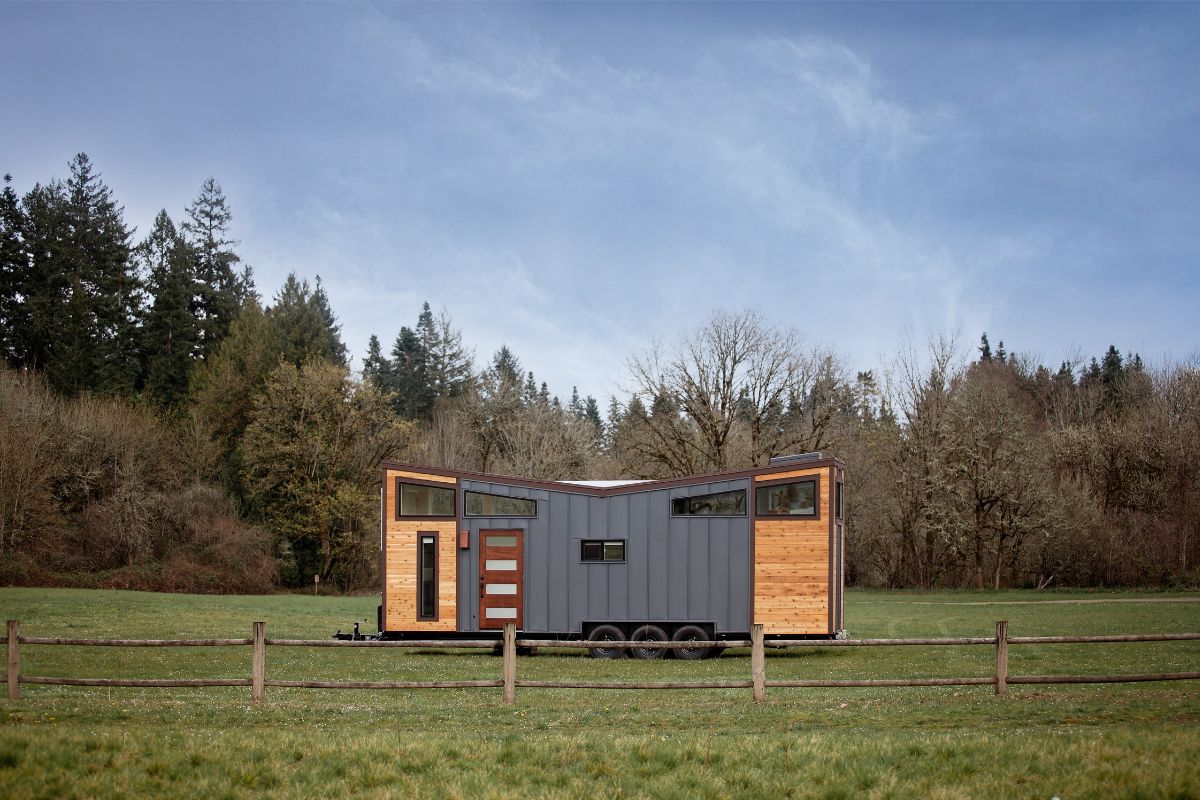The Best Composting Toilet: Our 5 Top Picks

Image Source: Canva
Ever thought about how much water you could save with a composting toilet? You're not alone. More and more people are turning to this eco-friendly solution, and it's easy to see why. They're efficient, sustainable, and surprisingly easy to use.
- Composting toilets are an eco-friendly alternative to traditional toilets, using decomposition and evaporation to recycle human waste without water.
- They offer significant water savings, over 30,000 gallons per year, translating into substantial cost savings on water bills.
- Besides being environmentally friendly by turning waste into compost for non-edible plants, composting toilets are suitable for remote areas without sewer access and have minimal odor.
- When choosing a composting toilet, consider local climate, zoning requirements, whether you need a centralized or self-contained unit, and the type of waste diversion system.
- The best composting toilet for you depends on your specific needs, with options ranging from high-capacity units for large households to compact models for small spaces or mobile use.
In this guide, we've scoured the market and narrowed down the top six composting toilets for you. Each one has its own unique features and benefits, so you can find the best fit for your lifestyle. Ready to take the plunge into sustainable waste management? Stay tuned, because we're about to explore the wonders of composting toilets together.
So What is a Composting Toilet?
So, you might be wondering, what exactly is a composting toilet? It's a type of toilet that doesn't need any water to flush. Instead, it uses the natural process of decomposition and evaporation to recycle human waste. This system works by separating the solid and liquid waste. The liquids evaporate, while the solids decompose, much like a compost pile in your garden.
You see, a composting toilet is a simple, yet ingenious contraption. It's designed to help you save water and reduce your environmental footprint. The process starts when you use it just like any other toilet, except that there's no water involved.
You add some organic material such as sawdust or peat moss, which helps to kickstart the composting process and reduce odors.
Over time, with the help of natural bacteria, the waste is broken down into compost. This compost can then be used to enrich the soil in non-edible plants around your home.
Essentially, your waste isn't waste at all - it's a valuable resource that gets returned to the earth, helping to nourish the soil and the plants. It's a pretty neat system, wouldn't you agree?
Advantages of Composting Toilets
Now that you understand what a composting toilet is, let's explore the numerous advantages they offer, from environmental impact to cost savings.
These toilets are a game-changer in sustainable living, making a significant contribution to water conservation. They can save you over 30,000 gallons of water per year compared to regular toilets - that's a massive cost saving on your water bill!
But it doesn't stop there. Composting toilets are incredibly eco-friendly, turning waste into valuable, nutrient-rich compost that's perfect for your garden. They're an excellent choice for those living in remote areas without access to traditional sewer systems, offering you independence and self-sufficiency.
Worried about unpleasant odors? These toilets have got you covered. They are designed to minimize or eliminate bad smells, often leaving a scent akin to wood or mulch. Additionally, they rarely clog, saving you from any unwanted maintenance issues.
In the long run, composting toilets are cost-effective. They require less maintenance than standard toilets, and the compost produced can even reduce your gardening costs. So, if you're looking for a toilet that's kind to your wallet and the planet, composting toilets are the way to go!
Things to Consider When Buying Composting Toilets
When you're purchasing a composting toilet, several factors come into play. You'll need to contemplate your local climate and zoning requirements, as well as whether a centralized or self-contained unit best suits your needs.
Don't forget to weigh up the pros and cons of urine-diverting and non-urine diverting models, and assess the ventilation in your chosen installation location.
Climate
Consider the climate of your location as it plays an important role in the efficiency and functionality of your composting toilet. In colder climates, the composting process might slow down considerably due to low temperatures. Thus, you might need a heating element or an insulated system to maintain the necessary warmth for best decomposition.
In contrast, in hot and dry climates, maintaining the right moisture level in your composting toilet can be a challenge. Too much heat can dry out the compost, hindering the composting process. So, you should opt for a model with effective moisture management features.
Zoning Requirements
Before you invest in a composting toilet, it's important to understand the zoning requirements and regulations in your area. These rules can vary greatly from one location to another, with some places fully embracing the eco-friendly approach, while others have stricter guidelines.
You'll need to check with your local health department or zoning office for specifics. In some cases, you may require a permit or must adhere to certain design standards. Failure to comply can result in fines or other legal issues. So, do your homework before buying.
Remember, these regulations are in place to protect public health and the environment. By understanding and complying with them, you're contributing to maintaining these standards while enjoying the benefits of your composting toilet.
Centralized or Self-Contained
In deciding to purchase a composting toilet, you'll need to figure out whether a centralized or self-contained system suits your needs best. Centralized systems are typically larger, installed away from the toilet, and handle waste from multiple bathrooms. They're a great fit for large households or small commercial venues.
On the contrary, self-contained units house the composting system within the toilet itself, making it ideal for small spaces, single bathrooms, tiny homes, or RVs. Your choice between these systems can hinge on factors like available space, the number of users, and your budget.
Remember, both types are efficient, eco-friendly, and water-conserving. So, weigh your options carefully and choose the right composting toilet to meet your specific needs and lifestyle.
Urine-Diverting or Non-Urine Diverting
When you're shopping for a composting toilet, it's crucial to understand the difference between urine-diverting and non-urine diverting systems to make the best choice for your needs. Urine-diverting toilets separate solid and liquid waste.
This segregation reduces odors and accelerates the composting process. It also allows for easier maintenance as liquid waste fills up faster and needs more frequent disposal. Conversely, non-urine diverting toilets mix all waste together.
This requires more careful management to guarantee effective composting and odor control. Both types have their pros and cons, and your choice should depend on your comfort level with maintenance and your odor tolerance. So, choose wisely and make sure the system you opt for best suits your needs and lifestyle.
Ventilation
Alongside the choice between urine-diverting and non-urine diverting systems, you'll want to take into account ventilation in your hunt for the perfect composting toilet. Proper ventilation is important for a couple of reasons.
Initially, it helps to evaporate excess moisture, which aids in the composting process. Next, it serves to vent out any odors, ensuring your bathroom remains fresh.
Some composting toilets come with built-in fans to aid in ventilation, while others may require manual venting. You'll want to think about the ease and convenience of these options.
Don't forget to check if your chosen model's ventilation system is compatible with your installation space. Remember, efficient ventilation plays a significant role in the overall performance and usability of your composting toilet.
Bulking Material
Choosing the right bulking material is essential to the efficient functioning of your composting toilet. This material aids in waste decomposition, absorbs excess moisture, and helps control odors.
Commonly used bulking materials include sawdust, peat moss, and coconut coir. When choosing, consider the material's decomposing speed, absorption capacity, and availability. Sawdust decomposes quickly and is often readily available, but may not absorb moisture as efficiently as peat moss. Peat moss, while efficient, raises environmental concerns due to over-harvesting.
Coconut coir is a essential alternative, but it can be more expensive. Remember, no matter your choice, regularly adding bulking material is critical to maintain your composting toilet's performance and hygiene. Don't underestimate this essential component in your eco-friendly waste management system.
Using Tissue or Toilet Paper
In considering a composting toilet for your household, it's important to think about your tissue or toilet paper usage and how it might impact the composting process. Keep in mind that not all composting toilets can handle large amounts of paper waste.
Therefore, moderating your use of toilet paper or choosing a quick-to-decompose type can be key in maintaining an effective composting system.
It's also vital to keep in mind that wet wipes, sanitary products, and thicker toilet papers can take longer to decompose, potentially disrupting the balance of your compost. Conversely, recycled or single-ply toilet paper is often a more eco-friendly choice.
Ultimately, understanding your toilet paper habits and adjusting them accordingly can greatly improve your composting toilet's efficiency. Make an informed choice for a greener future.
Dealing with Bugs
While you're factoring in your toilet paper usage, don't overlook the potential issue of bugs in your composting toilet system. It's essential to maintain a suitable composting environment that discourages the growth of unwanted pests.
Bugs can be attracted to the moisture and organic matter in the composting pile. To guarantee this, make sure your toilet is well-ventilated and the compost is turned regularly. Some composting toilets come with mesh screens to keep out flies and other insects.
Additionally, consider adding a layer of sawdust or coconut coir after each use to keep the compost dry and odor-free. Always remember, a well-maintained composting toilet shouldn't attract bugs. So, while shopping, look for features that aid in bug control.
Space
You'll want to contemplate the available space in your home or RV before purchasing a composting toilet, as the size and design can greatly impact your comfort and convenience. Smaller models may fit into tight corners but may require more frequent maintenance.
Conversely, larger composting toilets offer more waste capacity but need ample space. It's also important to take into account the height and shape of the toilet, ensuring it's comfortable for all users. Think about the location too.
You'll need proper ventilation to assist in the composting process and control odors. So, take measurements, take into account your spatial constraints, and select a composting toilet that suits your needs perfectly. Remember, a well-chosen composting toilet can enhance your eco-friendly lifestyle without sacrificing comfort.
Budget
After sizing up the space for your composting toilet, it's time to think about your budget, another key factor in making your decision. Composting toilets come in a wide range of prices. Just like any product, the cost often reflects the quality, but that doesn't mean you can't find an excellent option that fits within your budget.
You should consider both the upfront cost and the long-term savings. While composting toilets might be pricier initially, they save you money over time due to reduced water and sewer bills.
It's also worth considering the eco-friendly benefits, which can't be quantified in dollars. Your investment contributes to a greener planet. So, don't let a tight budget deter you from making a choice that's good for both your wallet and the environment.
Best Composting Toilet
So, you're searching for the best composting toilet for your needs? We've got you covered.
We'll soon compare and contrast top picks like Nature's Head Dry Composting Toilet, Sun-Mar Excel Composting Toilet, Seperatt Villa Composting Toilet, BioLet Self Contained Composting Toilet Systems, and Sun-Mar Centrex Centralized Composting Toilet Systems, so you can make an informed decision.
Nature's Head® Self Contained Composting Toilets
.jpg)
If you're in search of an efficient, eco-friendly, and reliable composting toilet, the Nature's Head® Self Contained Composting Toilets should be your best choice. It's a self-contained unit that's lightweight, compact, and easy to install, perfect for tiny homes, RVs, boats, or cabins.
With robust construction and a user-friendly design, it's built to last. This toilet separates liquid and solid waste, reducing odors and making cleanup a breeze. You'll also appreciate the hand crank agitator in the base for fast composting.
It's a waterless system, which means you'll conserve water while reducing your environmental impact. Plus, it's practically odorless. So, if you're ready to make the eco-friendly switch, Nature's Head® Self Contained Composting Toilets is a best choice.
Sun-Mar Excel Composting Toilet

While the Nature's Head Dry Composting Toilet is a top choice for many, you might find the Sun-Mar Excel Composting Toilet to be an even better fit for your needs, particularly if you're looking for a high-capacity, non-electic option.
This model can handle the demands of a three-person household in a residential setting or up to six people in a vacation setting. Its advanced composting technology breaks down waste efficiently and eliminates the need for a septic system or sewage connections. Plus, it's designed to keep odors under control, ensuring your home stays fresh and clean.
And with its sleek, compact design, the Sun-Mar Excel blends seamlessly into any bathroom decor. So, if you're seeking a sustainable, eco-friendly toilet solution, the Sun-Mar Excel Composting Toilet could be your perfect match.
Seperatt Villa Composting Toilet

For those seeking the ultimate in eco-friendly waste management, the Separett Villa Composting Toilet stands out as an excellent choice. This Swedish-made masterpiece offers an unbeatable balance of convenience and environmental responsibility.
It's designed to separate liquid and solid waste, reducing odors and making the composting process more efficient. You'll appreciate its sleek, modern design, which doesn't compromise on comfort or usability. It's also user-friendly with a simple installation process and easy to maintain. The Villa's fan works continuously, ensuring best aeration to speed up composting.
It's versatile too, functioning perfectly with solar, wind, or regular electricity. With the Separett Villa Composting Toilet, you're not just buying a toilet; you're investing in a sustainable future.
BioLet Self Contained Composting Toilet Systems

Often considered the pinnacle of composting toilet technology, BioLet Self Contained Composting Toilet Systems offer you an unbeatable combination of comfort, convenience, and environmental sustainability.
With its self-contained design, installing the BioLet is a breeze, requiring no external plumbing or electricity. It's perfect for off-grid living, RVs, or cabins. Its unique composting process efficiently breaks down waste into nutrient-rich compost, greatly reducing your environmental footprint.
BioLet toilets are known for their user-friendly operation and low maintenance. A built-in heater and fan guarantee ideal composting conditions, while the automatic mixing arm aids in breaking down waste.
You'll appreciate the odor-free operation, thanks to active ventilation. So, if you're looking for a reliable, eco-friendly solution, BioLet's composting toilets are an excellent choice.
Sun-Mar Centrex Centralized Composting Toilet Systems

After exploring the wonders of BioLet composting toilets, let's shift our focus to another remarkable product in the market - the Sun-Mar Centrex Centralized Composting Toilet Systems, heralded by many as the best composting toilet out there. This system is designed to handle waste from multiple bathrooms, making it perfect for larger households or small businesses.
It's eco-friendly, completely waterless and odorless, thanks to its advanced bio-drum technology. With easy installation and minimal maintenance, it offers you the convenience you need.
The Sun-Mar Centrex Systems emphasize efficiency and performance, turning waste into safe, fertile compost ideal for your garden. Not to mention, it's a fantastic way to conserve water and reduce your ecological footprint. So, if you're serious about sustainable living, this might just be the perfect fit for you.
Maintenance Tips
Proper maintenance of your composting toilet guarantees its longevity and effectiveness. You'll be amazed at how simple the upkeep can be, especially compared to traditional toilets.
First off, you need to regularly empty the composting chamber. Don't let it overfill; this could interrupt the composting process and create unnecessary mess.
Next, add bulking agents like sawdust, coconut coir, or peat moss to your toilet. These help to aerate the compost and control moisture, ensuring a faster and smell-free composting process.
Ventilation is crucial too. Make sure the ventilation systems stay unobstructed to allow for proper airflow, which aids in evaporation and odor control.
Finally, follow the manufacturer's guidelines for cleaning. Most composting toilets are easy to clean, requiring only mild soap and water.
Don't shy away from regular maintenance; it's the key to keeping your composting toilet running smoothly. Remember, a well-maintained composting toilet is not only a sustainable choice, it's also a cost-effective one in the long run. With these maintenance tips, you'll guarantee your composting toilet serves you well for years to come.
Conclusion
So, are you prepared to adopt a greener lifestyle? Composting toilets are your eco-friendly solution, converting waste into nutrient-rich compost and reducing water usage. Remember, the optimal composting toilet suits your needs and lifestyle. With the right maintenance, it's a game-changer in sustainable living. It's time to step up, make the switch, and contribute towards a healthier planet. Explore the options, weigh the benefits, and let's make a difference together.










